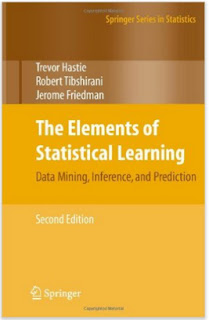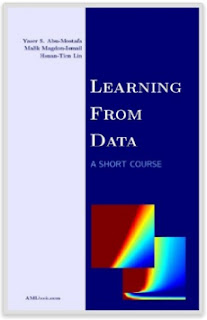What are the best book to self learn Machine Learning?
If you are beigneer on Machine Learning and a bookworm, then I think you've come to the right place. In my opinion, reading a book has no any substitute. You may learn any thing easily going through multimedia materials(videos or lectures), but if you want to dive deeper into the core of material, then you must have to read the respective books.
The case is same for Machine learning also. You can understand basic algorithms easily by watching machine learning videos on Youtube or by attending lectures, but if you want to gain deep knowledge and become expert, then you must read the books on machine learning and practice by your own.
I think following mentioned book will help you a lot. Check these out-
(I was recommended these books by professors and seniors)
- Machine Learning by Tom M Mitchell:
Authors: Tom M Mitchell
This book provides you good overview of Machine Learning algorithms and pseudocodes. It will help you a lot to take deep dive into the machine learning world.
Many of the leading universities of world recommend this book to their students as reference book since it covers all of the fundamentals clearly to understand Machine learning.
Free download here.
Free download here.
- The Hundred-Page Machine Learning Book :
Author: Andriy Burkov
If you want to cover more topics in less amount time, then this book should read. This book contains most of the machine learning topics in squeezed in about 100 pages. This book I think is one of the best book that covers more topics in less space. This book is easy to understand and written in quiet easy language.
- Machine Learning for Hackers:
Author: Drew Conway and John Myles White
This book majorly deals with data analysis in R. If you have basic Knowledge of R, then in my opinion this book is best for you to learn data analysis and understand the importance of using machine learning algorithm.
Author: Trevor Hastie, Robert Tibshrani and Jerome Friedman
This book deals with the machine learning algorithms mathematically from a statistical approach. The main thing to be kept in mind before picking this book is that you must have good knowledge of linear algebra. This book focuses on mathematical derivations to explain machine learning algorithm. If you have sound practice of math and statistic then this book might be the book for you.
Free download here
Free download here
- Learn From Data:
Author: Yaser Abu Mostafa, Malik Magdon-Ismail and Hsuan-Tien Lin
This book is written by experienced hands of popular and brilliant professors. This book contains good explanations of complex topics of machine learning.
Free download here.
Free download here.
- Pattern Recognition and Machine Learning:
Author: Christopher M Bishop
This book is one of the most referred book for pattern recognition. It serves like a comprehensive guide for statistical techniques of pattern recognition and machine learning. To understand this book you must have good understanding of linear algebra and multivariate calculus and little of statistical approach.
Free download here.
Free download here.
There might be other books, that may contain even more than above mentioned books. However, among the books so far I've gone through and suggested by some experts in this field above mentioned books are the good one to read and understand machine learning topics in core.
Also read- Which programming language is best for machine learning?
Also read- Getting started with Machine Learning
Also read- Which programming language is best for machine learning?
Also read- Getting started with Machine Learning






Comments
Post a Comment